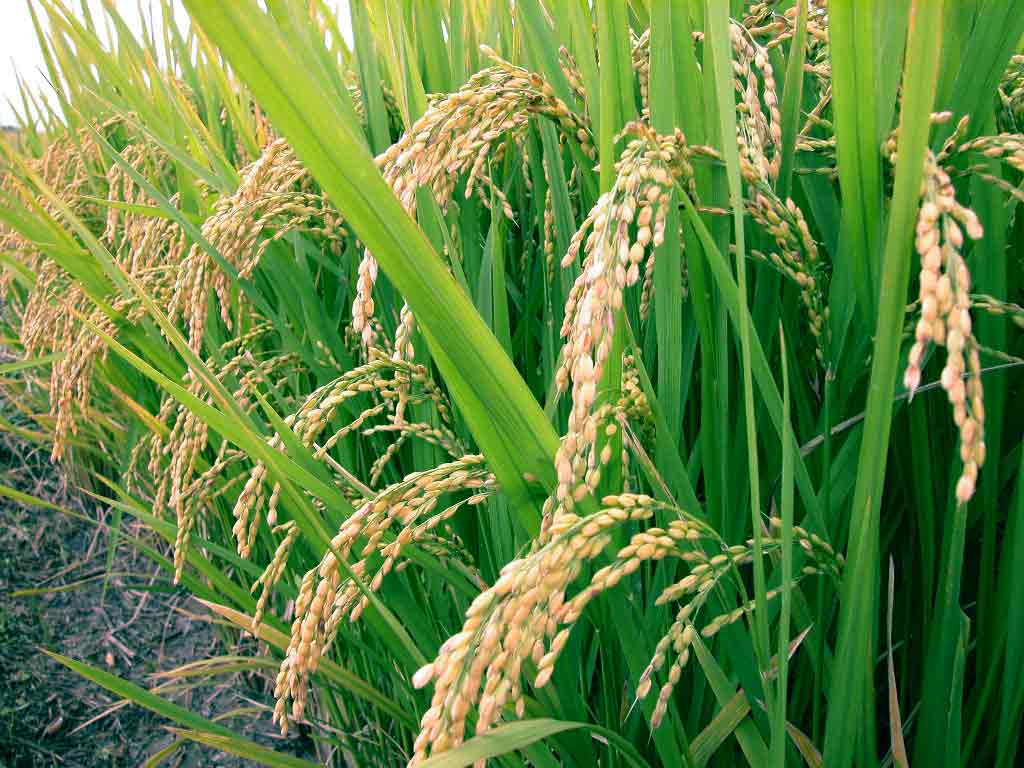National Forum for the Fight against Aflatoxins to be launched

By: Catherine Ahiador, Mary Dompreh and Nana Ama Sarfo
Rite FM’s Morning Show Host, Krobea Asante Tofepa Ntomentwene has called on Government and all stakeholders to mobilize immediate actions to eradicate and fight against the silent but unknown killer, Aflatoxins which contaminates cereals and grains. And this he said can be achieved through the launch of the National Forum for the Fight against Aflatoxin, NaFFA.
According to him, an online survey revealed that many farmers who were interviewed had little or no idea about Aflatoxins contamination which causes liver, kidney and other associated infections. They also did not know that, improper agronomic practices such as harvesting and storage were the agents of fungal growth on crops such as maize, millet, rice and groundnuts.
Dr. Abdulai Mumuni, an Aflatoxin expert disclosed in an exclusive interview on Rite FM’s Agric Forum that, they are produced primarily by the fungi Aspergillus flavus and Asperigillus parasiticus. However, four main types of Aflatoxins are B1, B2, G1 and G2 all not human and livestock friendly.
Aflatoxins contamination is deadly and dangerous, and so must be a major concern to all since many of Ghanaians, especially students rely on maize, groundnut and other grains as well as cereals, he stressed.
In America, Aflatoxin B1 is the major toxin produced, and is regulated at 20 ppb in Agricultural products that may be used in human food.
Dr. Abdulai Mumuni also disclosed that, timely harvesting and proper storage of our farm produce such as maize, sorghum, millet and others had a great potential of reducing Aflatoxins contamination. He stressed also that, proper drying of crops also reduces contamination and post-harvest loses, therefore advised farmers not to compromise.
Speaking to Krobea, he reiterated that, It’s Ghana’s Media core duty to inform and educate the populace; however the need for Government and all stakeholders put hands on deck in the fight against what just ignorance and neglect can bring the country, to a disrepute.
In transforming lives means to sustain the lives too, he said but pleaded for support with Government, Organizations, Society groups and well-wishers to assist Rite FM in its quest to promote proper harvesting, handling and storage of food before it gets to consumers.
In reference to a study in May 2008, conducted by Dick Emmanuel Akrobortu, B. Ed.(Hons.) Agriculture and supervised by Ing. Prof. Ato Bart – Plange and Ing. Dr. Ahmad Addo both lecturers of the department of Agricultural Engineering, KNUST, the situation is alarming and calls for much sensitization and attention of Food and Drugs Authority, Ghana Standards Board, Plants, Animals and Crops Research Institutes, Environmental Protection Agency and all stakeholders.
The study was carried out on samples collected over a period of 10 years (1990 to 1999) in three Districts (Ejura-Sekyeredumase, Afram Plains/North-Kwahu and Nkoranza) well – known for maize production in Ghana.
The aim was to study the influence of storage locations on levels of aflatoxin contamination and distribution in maize.
The findings indicated that significant difference exists between the aflatoxin contamination levels of samples collected from Ejura-Sekyeredumase and Nkoranza (p<0.05).
Also there was a significant difference between the aflatoxin contamination levels of samples collected from Ejura-Sekyeredumase and North-Kwahu (p<0.05).
There was no significant difference between the contamination levels of samples from North- Kwahu and Nkoranza (p>0.05). The total aflatoxin levels in samples from Ejura-Sekyeredumase, North-Kwahu and Nkoranza over the period were 120.50 ppb, 153.20 ppb and 134.17 ppb respectively.
For the period 1990 to 1999 the aflatoxin distributions in the storage locations showed that Nkoranza had the highest level in 1997 and 1999 while North-Kwahu had the highest in 1990, 1991, 1993 and 1998. Similarly, Nkoranza and North-Kwahu had equal levels of 10.50 ppb in 1995.
The three locations had equal levels of 9.50 ppb in 1994. On the whole, Ejura-Sekyeredumase had fair distribution levels since it was the only location with its highest level far below the acceptable level of 20 ppb for humans.
However, Mr. Krobea Asante disclosed his utmost surprise to food regulatory bodies in the country as most of the recommendations in the findings have not been given any serious attention, how can we be careful when nobody seem to know about this, he retorted.
“The Media has woefully failed to educate its listeners on the need for consumer protection to be taken as an important subject for dialogue in both print and electronic media” He added, and called on Government and all stakeholders to develop a national policy to effectively manage and control food contamination and poisoning. He has therefore suggested the education to begin now in schools, churches, homes as well as to be used by political bigwigs as their campaign message.
Ghana at age 57 ought to have “Aflatoxins control units in every community”, and soon will liaise with masses of food consumers to launch, the National Forum for the fight against Aflatoxins, NaFFA.
Recommendations
- More research should be undertaken in different farming communities and districts of the various regions.
- Studies should also be carried out on the Aflatoxin contamination of standing maize in different storage locations in the country.
- Quality standards of maize and other seeds should be developed and encouraged for production.
- Maize storage structures should be designed to meet standards, taking into consideration the psychometric characteristics of the wind in order to prevent moisture drift into grains in order to maintain optimum storage temperatures.
- The Agricultural Extension staff of MOFA should educate farmers on the need to adopt Good Agricultural practices (GAP) in order to produce foods, free of hazards such as Aflatoxins.
- Government should formulate campaign strategies to sensitize people on the need to, consume good quality grains as well as feed their livestock and poultry with uncontaminated feeds.
- The media should also as part of its social responsibility educate the public on the health hazards of Aflatoxins.
- Hazard Analysis Critical Control Point (HACCP) should be employed in the Agricultural production channel to minimize the aflatoxin contamination of foods.
In a development, Mr. Kofi Essel, Technical Officer at the Food and Drugs Authority reacting to their responsibility to make sure food and drugs consumed are wholesome, mentioned that the fight is a shared responsibility of MOFA, PPRSD, Animal and Plant Research amongst others with inclusion of even farmers, middle men and consumers.
He disclosed that, Aflatoxin contamination is one major concern of government and that a committee has been instituted with representatives from the Ministry of Food And Agriculture to outline strategies to eradicate the menace, which is a major contributory factor to the increased post-harvest, loses.
Mr. Essel cautioned that, outmoded traditional practices should be eschewed, through conscious effort to educate both farmers and consumers and called on Authorities of Basic, Secondary and Tertiary Institutions not to store their grains and cereals for a very long time, since it can also bring about contamination.
Krobea Asante, hinted that the Forum is non-partisan as it only seeks to protect consumers and cautioned groups and individuals to refrain from working political gains out of it. “I believe many have died from this silent killer Fungi, and what is most important now is for us all to fight our not known enemy”, he said.
He has therefore appealed to researchers, scientists and research institutions to develop a database to monitor prevalence of Aflatoxin contaminations and also called for support as a total of $ 30,000.00 is needed to roll out the community based approach method to fight this deadly silent killer.
Source: ritefmonline.org






Very good article, aflatoxins are a leading cause of the deaths of many pets in the Western world, usually resulting in liver cancer in dogs and cats.